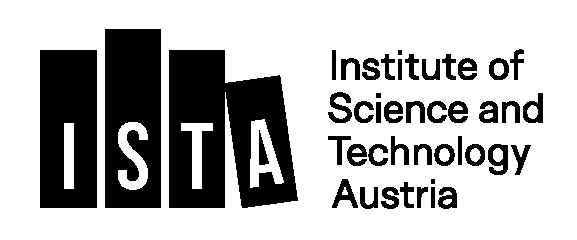La répression pénale des violences gynécologiques et obstétricales // Criminal Prosecution of Gynecological and Obstetric Violence
|
ABG-133936
ADUM-67848 |
Thesis topic | |
| 2025-10-21 | Other public funding |
Université d'Artois
DOUAI - Les Hauts de France - France
La répression pénale des violences gynécologiques et obstétricales // Criminal Prosecution of Gynecological and Obstetric Violence
- Sociology, anthropology, learning sciences
Violences médicales , Maïeutique , Gynécologie , Répression , Obstétrique , Sanction juridique
Medical violence , maieutics, Gynecology, Criminal Prosecution, Obstetric , penalty
Medical violence , maieutics, Gynecology, Criminal Prosecution, Obstetric , penalty
Topic description
Les violences gynécologiques et obstétricales (VOG) recouvrent un large spectre d'actes dénoncés comme violents, de la simple maladresse verbale aux atteintes les plus graves à l'intégrité de la personne. Depuis la publication de plusieurs rapports institutionnels et dernièrement d'un rapport de l'Union européenne en mai 2024, leur prévention apparait comme un enjeu prioritaire. Dans ce champ, un travail approfondi sur la mobilisation du droit pénal apparait nécessaire. En effet, si la répression pénale a l'apparence d'une réponse logique en matière de violences, le contexte des soins gynécologiques et obstétricaux soulève de nombreuses questions théoriques. D'abord, le contexte de soin correspond à une hypothèse d'autorisation de la loi (art. 122-4 CP) dans laquelle certaines atteintes à l'intégrité sont justifiées, excluant toute qualification pénale. Ensuite, les contours des infractions pénales susceptibles d'être mobilisées sont moins lisibles en contexte de soin de santé dans la mesure où certains éléments constitutifs sont plus complexes à caractériser (caractère brutal d'un comportement, atteinte à l'intégrité distincte des conséquences de l'acte médical, défaut de consentement, élément moral des infractions sexuelles ou de violences). Enfin, la répression pénale dans un contexte de soin interroge les limites de la mise en oeuvre des procédures pénales dans un environnement qui obéit à des logiques essentiellement professionnelles et disciplinaires, ce qui confronte les victimes à de nombreux obstacles dans la prise en charge de leurs plaintes (manque de formation de la police judiciaire, classements sans suite, difficulté de qualification pénale des situations concernées. Ce travail de thèse consistera à envisager les enjeux, les limites et les perspectives en matière de répression pénale des violences gynécologiques et obstétricales. Il intégrera également des aspects de droit comparé.
------------------------------------------------------------------------------------------------------------------------------------------------------------------------
------------------------------------------------------------------------------------------------------------------------------------------------------------------------
Gynecological and Obstetric Violence (GOV) encompasses a wide range of acts denounced as violent, from mere verbal clumsiness to the most serious violations of a person's integrity. Since the publication of several institutional reports — most recently a report by the European Union in May 2024 — the prevention of such violence has emerged as a priority issue. Within this field, an in-depth analysis of the use of criminal law appears necessary.
Indeed, while criminal prosecution may seem like a logical response to acts of violence, the context of gynecological and obstetric care raises numerous theoretical questions. First, the medical care context falls under a legal assumption of justification (Article 122-4 of the French Penal Code), whereby certain violations of physical integrity are authorized and thus excluded from criminal qualification. Second, the boundaries of applicable criminal offenses are less clear in a healthcare setting, as some of the constituent elements are more complex to establish — for instance, the brutality of a behavior, harm to integrity distinct from the medical procedure's consequences, lack of consent, or the mental element of sexual offenses or acts of violence.
Finally, criminal prosecution in a healthcare context challenges the limits of criminal procedure in an environment that primarily follows professional and disciplinary logic. This creates numerous obstacles for victims in pursuing justice, including lack of training among judicial police, frequent case dismissals, and difficulties in legally qualifying the situations in question.
This doctoral research will explore the issues, limitations, and prospects of criminal prosecution of gynecological and obstetric violence. It will also include aspects of comparative law.
------------------------------------------------------------------------------------------------------------------------------------------------------------------------
------------------------------------------------------------------------------------------------------------------------------------------------------------------------
Début de la thèse : 01/12/2025
------------------------------------------------------------------------------------------------------------------------------------------------------------------------
------------------------------------------------------------------------------------------------------------------------------------------------------------------------
Gynecological and Obstetric Violence (GOV) encompasses a wide range of acts denounced as violent, from mere verbal clumsiness to the most serious violations of a person's integrity. Since the publication of several institutional reports — most recently a report by the European Union in May 2024 — the prevention of such violence has emerged as a priority issue. Within this field, an in-depth analysis of the use of criminal law appears necessary.
Indeed, while criminal prosecution may seem like a logical response to acts of violence, the context of gynecological and obstetric care raises numerous theoretical questions. First, the medical care context falls under a legal assumption of justification (Article 122-4 of the French Penal Code), whereby certain violations of physical integrity are authorized and thus excluded from criminal qualification. Second, the boundaries of applicable criminal offenses are less clear in a healthcare setting, as some of the constituent elements are more complex to establish — for instance, the brutality of a behavior, harm to integrity distinct from the medical procedure's consequences, lack of consent, or the mental element of sexual offenses or acts of violence.
Finally, criminal prosecution in a healthcare context challenges the limits of criminal procedure in an environment that primarily follows professional and disciplinary logic. This creates numerous obstacles for victims in pursuing justice, including lack of training among judicial police, frequent case dismissals, and difficulties in legally qualifying the situations in question.
This doctoral research will explore the issues, limitations, and prospects of criminal prosecution of gynecological and obstetric violence. It will also include aspects of comparative law.
------------------------------------------------------------------------------------------------------------------------------------------------------------------------
------------------------------------------------------------------------------------------------------------------------------------------------------------------------
Début de la thèse : 01/12/2025
Funding category
Other public funding
Funding further details
ANR Financement d'Agences de financement de la recherche
Presentation of host institution and host laboratory
Université d'Artois
Institution awarding doctoral degree
Université d'Artois
Graduate school
586 Sciences Humaines et Sociales
Candidate's profile
La personne candidate au doctorat devra être titulaire d'un Master de droit pénal ou dans lequel étaient assurés des enseignements substantiels en matière pénale. Elle devra encore témoigner, outre ses capacités d'analyse juridique et de rigueur, d'un intérêt pour le sujet. De plus, travaillant au sein d'une équipe de recherche pluridisciplinaire, la personne en doctorat devra être dotée de bonnes capacités d'organisation et d'adaptation mais aussi d'un sens relationnel certain.
The prospective PhD candidate must hold a Master's degree in criminal law, or a Master's degree that included substantial coursework in criminal law. In addition to strong legal analytical skills and rigor, the candidate must also demonstrate a genuine interest in the research topic. Moreover, as they will be working within a multidisciplinary research team, the PhD candidate must possess solid organizational and adaptability skills, as well as strong interpersonal abilities.
The prospective PhD candidate must hold a Master's degree in criminal law, or a Master's degree that included substantial coursework in criminal law. In addition to strong legal analytical skills and rigor, the candidate must also demonstrate a genuine interest in the research topic. Moreover, as they will be working within a multidisciplinary research team, the PhD candidate must possess solid organizational and adaptability skills, as well as strong interpersonal abilities.
2025-11-09
Apply
Close
Vous avez déjà un compte ?
Nouvel utilisateur ?
More information about ABG?
Get ABG’s monthly newsletters including news, job offers, grants & fellowships and a selection of relevant events…
Discover our members
 Groupe AFNOR - Association française de normalisation
Groupe AFNOR - Association française de normalisation  Institut Sup'biotech de Paris
Institut Sup'biotech de Paris  SUEZ
SUEZ  CESI
CESI  ADEME
ADEME  PhDOOC
PhDOOC  MabDesign
MabDesign  ANRT
ANRT  ASNR - Autorité de sûreté nucléaire et de radioprotection - Siège
ASNR - Autorité de sûreté nucléaire et de radioprotection - Siège  Généthon
Généthon  Nokia Bell Labs France
Nokia Bell Labs France  TotalEnergies
TotalEnergies  Aérocentre, Pôle d'excellence régional
Aérocentre, Pôle d'excellence régional  ONERA - The French Aerospace Lab
ONERA - The French Aerospace Lab  MabDesign
MabDesign  Ifremer
Ifremer  CASDEN
CASDEN  Tecknowmetrix
Tecknowmetrix  Laboratoire National de Métrologie et d'Essais - LNE
Laboratoire National de Métrologie et d'Essais - LNE
-
Thesis topicRef. 134080Klosterneuburg, Austria
 Institute of Science and Technology Austria - ISTA
Institute of Science and Technology Austria - ISTAFully-funded PhD position at ISTA
Scientific expertises :Chemistry - Computer science - Mathematics
-
JobRef. 134088, Nouvelle Aquitaine , France
 SILAB
SILABResponsable Matières Premières Naturelles
Scientific expertises :Biology
Experience level :Any


